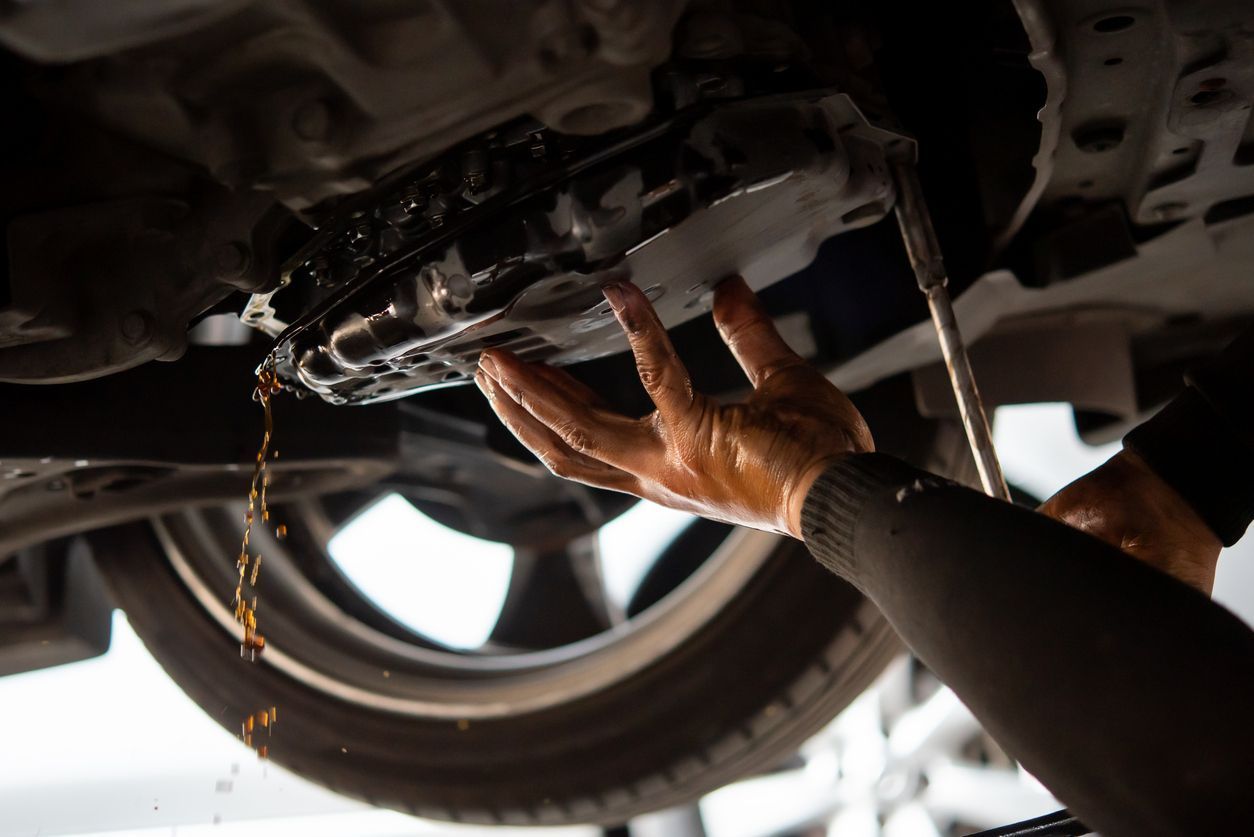Mon - Fri 8:30 AM - 5:30 PM
Give us a call:
How Often Should You Change Your Oil for Optimal Engine Performance?
Oil changes are one of the most fundamental yet often overlooked aspects of vehicle maintenance. While everyone knows they’re necessary, the real question is: how often should you change your oil to ensure your engine runs at peak performance? The answer isn’t as straightforward as a universal mileage recommendation—it depends on your vehicle type, driving habits, and the quality of oil used. At S. H. Automotive, we specialize in oil change services for European & Asian vehicles, ensuring that every car receives the best care to keep it running smoothly.
Understanding Your Engine’s Oil Needs
Engine oil serves as the lifeblood of your car’s engine, lubricating moving parts, reducing friction, and preventing excessive wear. Over time, oil breaks down due to heat, contaminants, and engine stress, losing its effectiveness. Driving with degraded oil can lead to sludge buildup, poor fuel efficiency, and even engine failure. Import vehicles, in particular, require precisely formulated synthetic oils that meet manufacturer specifications to ensure longevity and performance.
Many drivers assume that the old rule of changing oil every 3,000 miles applies to all vehicles, but modern engines—especially those in high-performance European or Asian cars—operate under different conditions. Most BMW, Audi, Mercedes-Benz, and Volkswagen models use synthetic oil, which can last significantly longer. However, long oil change intervals don’t mean you can forget about regular maintenance.
Factors That Influence Oil Change Frequency
Driving habits play a huge role in how often you need an oil change. If you frequently drive in stop-and-go traffic, take short trips, or push your vehicle with aggressive acceleration, your oil degrades faster than in highway driving conditions. Extreme weather, whether scorching summers or freezing winters, can also affect oil viscosity and efficiency.
Oil change intervals also vary based on manufacturer recommendations and the type of oil used. Most Import car manufacturers recommend oil changes every 7,500 to 10,000 miles, but this is a guideline that assumes ideal driving conditions. For those who drive in high-stress environments, such as city traffic or mountainous regions, more frequent changes—around 5,000 to 7,500 miles—might be necessary.
Synthetic vs. Conventional Oil: Why It Matters
European & Asian cars are designed with high-performance engines that require synthetic oil to function optimally. Unlike conventional oil, synthetic oil is engineered to withstand extreme temperatures, provide superior lubrication, and resist breakdown. This is crucial for vehicles with turbocharged engines, direct fuel injection, or start-stop technology, all of which put extra strain on the oil.
Using the right oil ensures maximum engine protection, reducing wear and preventing costly repairs down the line. While synthetic oil lasts longer than conventional oil, it’s still important to monitor oil levels and condition regularly to avoid potential engine damage.
Signs It’s Time for an Oil Change
Even if you follow a regular maintenance schedule, there are clear signs that your oil needs changing sooner. If you notice engine knocking or ticking noises, sluggish acceleration, or darker, dirty oil when checking your dipstick, it’s time to schedule an oil change. Some Import cars have advanced sensors that alert you when oil levels are low or when oil quality has degraded, but waiting for a dashboard warning isn’t always the best approach.
Another common mistake is assuming that if your oil level is fine, it doesn’t need changing. Oil doesn’t just lubricate—it also carries away dirt and debris, which can accumulate over time. This is why regular oil and filter changes are essential, even if your oil level appears adequate.
The Importance of Professional Oil Changes for Import Vehicles
While DIY oil changes may seem cost-effective, European & Asian vehicles require specialized tools, precise oil specifications, and proper disposal procedures that most general shops or at-home mechanics don’t have. At S. H. Automotive, we use OEM-approved synthetic oils and high-quality filters, ensuring that your Acura, BMW, Mercedes, Toyota, and other Import models receive the best possible care.
Additionally, regular professional oil changes include thorough inspections that can detect early signs of leaks, worn gaskets, or potential engine issues. Catching these small problems early can prevent expensive engine repairs down the road.
Final Thoughts: Stick to a Schedule That Protects Your Engine
Changing your oil regularly is one of the simplest and most effective ways to extend the life of your engine. While general guidelines suggest 7,500 to 10,000 miles for synthetic oil, it’s important to consider your driving habits, environment, and manufacturer recommendations. If you're unsure about the best oil change interval for your European or Asian vehicle, consulting a professional technician at S. H. Automotive is the best way to ensure your car stays in top condition.
Ignoring oil changes can lead to sludge buildup, reduced fuel efficiency, and even catastrophic engine failure, all of which are far more costly than routine maintenance. Keeping up with regular oil changes not only improves engine performance and fuel efficiency but also gives you peace of mind on the road.
If it’s time for an oil change or you’re unsure about your car’s current oil condition, schedule an appointment at S. H. Automotive today and ensure your engine stays protected and performing at its best.
Payment Options




Services
List of Services
-
Oil ChangesOil Changes
-
Brake Inspections & RepairBrake Inspections & Repair
-
Engine Diagnostics & RepairEngine Diagnostics & Repair
-
Battery Testing & ReplacementBattery Testing & Replacement
-
Transmission Service & Fluid ExchangeTransmission Service & Fluid Exchange
-
Suspension & Steering RepairSuspension & Steering Repair
-
Air Conditioning RepairAir Conditioning Repair
-
Vehicle InspectionsVehicle Inspections
List of Services
-
Oil ChangesOil Changes
-
Brake Inspections & RepairBrake Inspections & Repair
-
Engine Diagnostics & RepairEngine Diagnostics & Repair
-
Battery Testing & ReplacementBattery Testing & Replacement
-
Transmission Service & Fluid ExchangeTransmission Service & Fluid Exchange
-
Suspension & Steering RepairSuspension & Steering Repair
-
Air Conditioning RepairAir Conditioning Repair
-
Vehicle InspectionsVehicle Inspections
Services
List of Services
-
Oil ChangesOil Changes
-
Brake Inspections & RepairBrake Inspections & Repair
-
Engine Diagnostics & RepairEngine Diagnostics & Repair
-
Battery Testing & ReplacementBattery Testing & Replacement
-
Transmission Service & Fluid ExchangeTransmission Service & Fluid Exchange
-
Suspension & Steering RepairSuspension & Steering Repair
-
Air Conditioning RepairAir Conditioning Repair
-
Vehicle InspectionsVehicle Inspections
List of Services
-
Oil ChangesOil Changes
-
Brake Inspections & RepairBrake Inspections & Repair
-
Engine Diagnostics & RepairEngine Diagnostics & Repair
-
Battery Testing & ReplacementBattery Testing & Replacement
-
Transmission Service & Fluid ExchangeTransmission Service & Fluid Exchange
-
Suspension & Steering RepairSuspension & Steering Repair
-
Air Conditioning RepairAir Conditioning Repair
-
Vehicle InspectionsVehicle Inspections
© 2024 S. H. Automotive. All Rights Reserved | Website managed by Shopgenie

